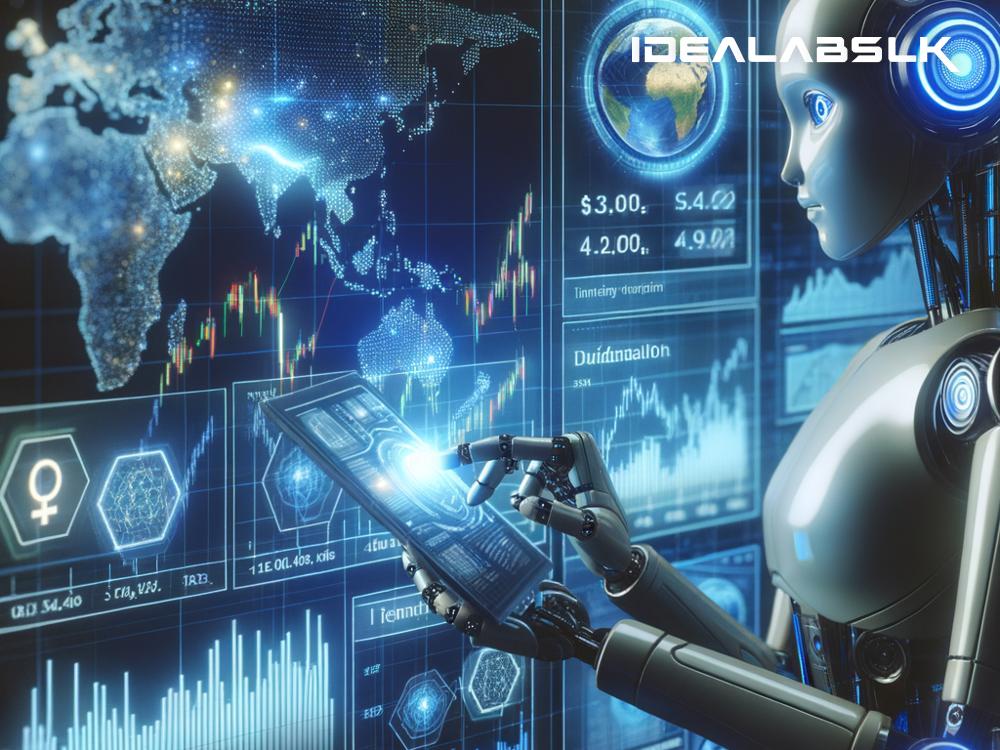AI for Trading: How AI-Powered Trading Bots Are Shaping the Future of Stock Trading
In a world where technology continues to evolve at lightning speed, Artificial Intelligence (AI) has become a game-changer in many fields, including the stock market. Stock trading, once the exclusive domain of humans, has increasingly welcomed AI-powered trading bots into its fold. But what does this mean for the future of stock trading? Let's dive into the fascinating world of AI for trading and discover how it's shaping the investment landscape.
What Are AI-Powered Trading Bots?
Imagine you have a robot friend who's incredibly good at analyzing numbers, spotting trends, and making predictions. Now, imagine this friend could help you decide when to buy or sell stocks, all in the blink of an eye. That's essentially what an AI-powered trading bot does. These bots use algorithms based on artificial intelligence to make trading decisions. They can process vast amounts of data, learn from market trends, and execute trades at an unprecedented speed.
The Rise of AI in Stock Trading
Stock trading has always been about making informed decisions based on market analysis. Traditionally, this involved a lot of research, intuition, and sometimes, a bit of luck. However, the complexity and speed of today's global financial markets have made it challenging for humans to keep up without assistance. Enter AI trading bots. Their ability to quickly analyze and react to market changes has made them invaluable tools for traders and investors.
How AI Trading Bots Work
AI trading bots operate using machine learning and data analytics. They continuously gather information from various sources, like financial news, market prices, economic indicators, and even social media, to learn about market patterns. This data helps them predict future market movements and make decisions on buying or selling stocks.
One of the key advantages of AI trading bots is their emotional detachment. Unlike humans, bots don't experience fear or greed—they make decisions based solely on data. This objectivity can lead to more disciplined and consistent trading strategies.
The Impact on The Market
The introduction of AI-powered bots into the stock market has both short-term and long-term impacts. In the short term, they can significantly increase market efficiency. Their ability to execute trades quickly reduces the price difference between buying and selling, which can result in lower costs for investors.
In the long term, AI trading bots could fundamentally change how we think about investing. They might level the playing field between individual investors and large financial institutions, as both can access sophisticated trading tools. Moreover, the increased use of AI in trading could lead to more stable markets, as bots might help dampen the impact of panic selling or overenthusiastic buying.
Ethical and Regulatory Considerations
However, the rise of AI-powered trading isn't without its challenges. One concern is the potential for market manipulation. Bots executing large numbers of trades in a short period could create artificial market movements, misleading human traders. There's also the question of fairness—do AI traders have an unfair advantage over human ones?
These concerns have led to calls for clearer regulations governing AI in stock trading. Regulators are beginning to pay attention, trying to understand how AI trading impacts the market and what rules might be necessary to ensure fair and transparent trading for everyone.
The Future of Trading
Looking ahead, it's clear that AI will play an increasingly central role in stock trading. As AI technologies evolve, trading bots will become smarter, faster, and more efficient. This doesn't mean humans will be pushed out of the trading equation. Instead, the future is likely to see a collaboration between human financial expertise and AI's analytical power, opening up new opportunities for investors.
Moreover, the democratization of AI trading technology means that individual investors could have access to the same powerful tools as big institutions, potentially making the stock market more accessible and fair for everyone involved.
Conclusion
AI-powered trading bots are more than just a technological novelty; they're reshaping the landscape of stock trading. By bringing unparalleled speed, efficiency, and objectivity to trading decisions, AI is not only changing how trades are made but also who can make them. As we move forward, the blend of human insight and AI's analytical prowess promises to create a more inclusive, efficient, and stable financial market. The future of stock trading isn't just human or machine—it's a compelling partnership of both.

